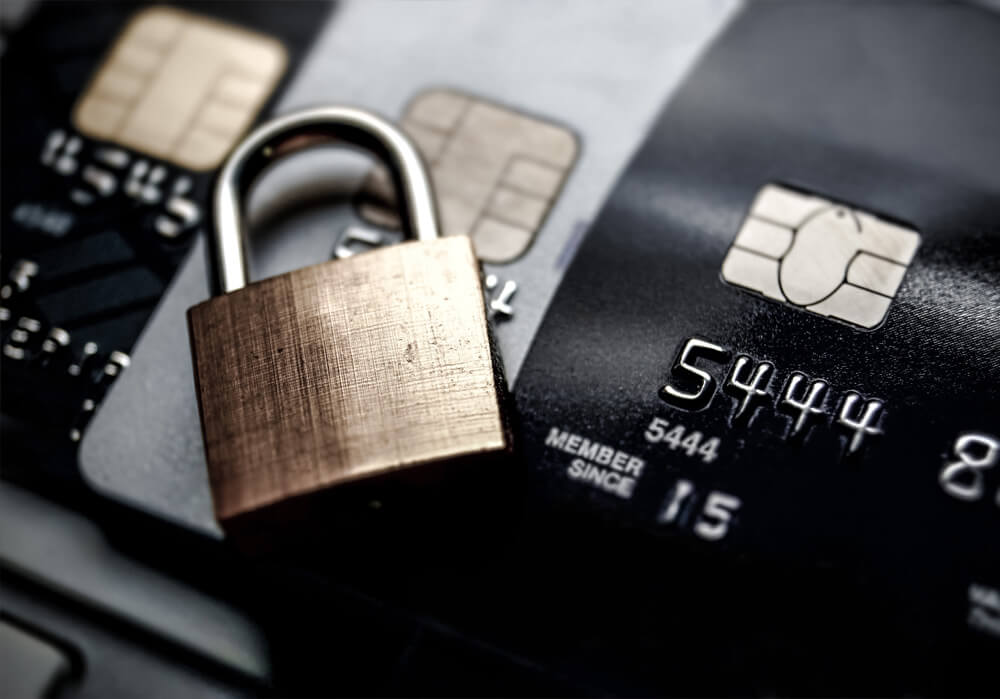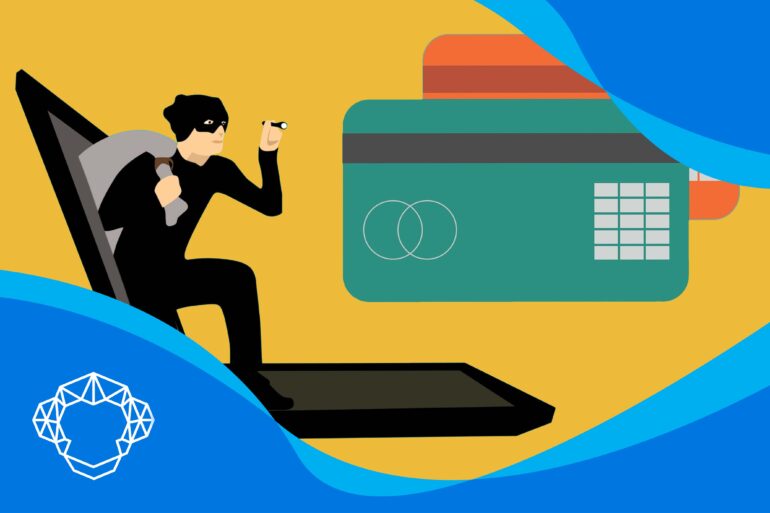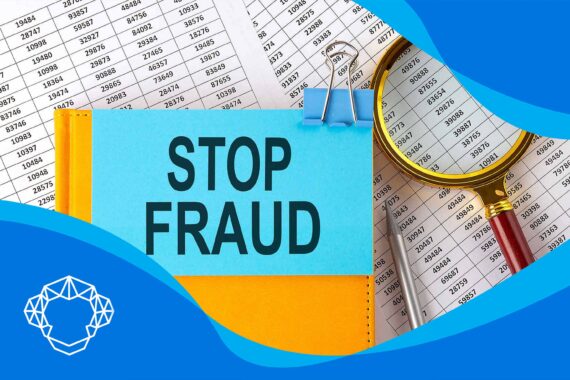Business owners should understand the reality of merchant fraud and its long-term consequences. If not dealt with properly and not prevented, these scams can significantly damage a business’s reputation, sometimes irreparably. That’s why it’s important to talk about defense mechanisms.
When we think about scams, especially those associated with online businesses, we usually think about identity theft. It’s a scam that gets the most attention, and with the hype that surrounds digital crimes, it’s fairly easy to overlook some other threats. Merchant credit card fraud is one of the most costly but also most common causes of financial losses for acquiring banks. Unfortunately, it can also severely damage traders and their customers. However, understanding how they work and what they are can help you put safety mechanisms in place.
Understanding Merchant Fraud
If you’re unfamiliar with the term credit card merchant fraud, the first thing you should understand is that it can be a bit misleading. These frauds are sometimes referred to as “fake merchant frauds,” and it’s a more accurate term for these scams. These frauds can be any activity where a scammer poses as a legitimate enterprise, with the sole purpose of scamming either customers or acquiring banks.
So the scam doesn’t come from a legitimate trader. In fact, the culprits are criminals that open fake merchant accounts so they can accept debit cards and credit cards from unsuspecting victims through their payment gateway. The online world allows scammers to enjoy anonymity. But above all, they are provided with easy access to a vast pool of potential victims. For them, creating a fake storefront has never been easier. It’s basically a card-not-present scam with less risk and much less investment involved.
How Does a Merchant Fraud Work?
Unfortunately, just like all other scams, these types of frauds can be committed in a variety of ways. However, the steps that fraudsters take are typically the same. They involve the following steps:
- It starts when a scammer sets up a fake e-commerce store.
- Next, they will advertise about selling the goods that may or may not exist.
- A cardholder makes a purchase using one of the payment options
- The scammer either takes those funds immediately or holds the card number in order to make unauthorized purchases.
Since this type of scam includes opening an account and involving one of the credit card processing companies to provide credit card processing services, banks are the ones that tend to be hit the most.

From Identity Swap to Fake Business Operations – Know Your Scams
It’s very unfortunate for the parties involved, but these frauds come in a variety of different types. Some of them are more common than others, and they involve simple deceptions as well as more sophisticated forms of cybercrime. Understanding in which forms they come can help put safety mechanisms in place and help you understand how to prevent credit card fraud as a merchant.
Identity Swap
The surprisingly common scheme, identity swap involves setting up merchant accounts using fake identities. This involves individuals or businesses opening accounts in sanctioned countries or those on watch lists. This is done to bypass AML (Anti-Money Laundering) rules.
Bust Out Scams
Another common scam, bust out scam involves the creation of fake enterprise entities, whether it’s a micro business, a fake small business, or any other type of business that can be used as a fake screen for fraudulent activity. This is done in order to eventually open multiple merchant accounts and use them to apply for as many credit lines as possible. Approved funds are then exhausted by scammers, which subsequently disappear without repaying those debts. The reason why this scam is successful is the fact that scammers manage to create very convincing fake storefronts to seem convincing in front of banks and other lenders.
Fake Business Operations
When it comes to organized crime networks, they usually pose as legitimate businesses, although they don’t exist technically. This fake enterprise is created and sits dormant or is simply inoperable. It’s a fake front that serves the purpose to cover the illegal activities of the organization behind it, and it can involve hacking, selling drugs, and making fake goods. The downside of the internet is that it makes it surprisingly easy for scammers and criminals to set up a fake enterprise that comes off as legitimate.
Identity Theft
For decades, fraudsters have carried out a wide range of various identity theft schemes and attacks, but the threat level now is higher than ever. Online databases contain all the data that identity thieves require to create false identities or steal other people’s identities. Additionally, personal data is often safeguarded by mechanisms that are simply not efficient enough.
Payments Laundering
Electronic Transactions Association (ETA), a trade organization for the payments sector, estimates that transaction laundering occurs in between 50% and 70% of online purchases of illegal substances, counterfeit items, and pornographic content.
Change of Business Format
Those businesses that engage in higher risk or illegal operations frequently alter or create false information about the nature of the goods and services they offer. They are thus able to carry on with these unlawful, riskier actions without being discovered.
Triangulation Scams
Triangulation scams, as their name suggests, involve three parties – the fraudster, the unsuspecting customer, and a legitimate enterprise. When a customer places an order from what seems to be a trustworthy retailer but is actually a fraudulent storefront, the problem begins.
The next step may cause the scammer to lose money on the initial purchase because they use the stolen credit card information to order those goods from a legitimate trader. They have it shipped to the customer’s shipping address. The issue escalates afterward because scammers can potentially charge thousands of dollars from the victim, using the stolen personal data.

Scam Prevention Mechanisms
The only effective merchant fraud protection is careful and persistent effort. To reduce the chance of unintentionally aiding fraudsters, vendors, acquiring banks, and legal merchants must exercise due diligence in two crucial areas. Every step of processing transactions matters – your relationship with the credit card processing company along with the bank is essential.
Monitoring of Business Relationships
Relationship monitoring involves establishing and maintaining close relationships with customers and vendors to prevent fraudulent activities. This includes verifying the identity of customers and vendors, monitoring transactions for signs of suspicious behavior, and keeping track of customer and vendor behavior patterns.
By monitoring these relationships, businesses can detect fraudulent activities such as chargebacks, unauthorized purchases, and account takeovers. This can help to prevent losses and protect the business from reputational damage.
Automation and Data Analytics of Payments
Other critical factors include data analytics along with automation. By analyzing large amounts of data in real time, businesses can identify patterns and anomalies that may indicate fraudulent activities. This can be accomplished through the use of machine learning algorithms, which can detect patterns and anomalies that may not be apparent to human analysts. Automation can also be used for merchant fraud detection – to identify and flag suspicious transactions, allowing businesses to take immediate action to prevent fraud.

Detection for Merchants
In today’s fast-paced digital world, online scams have become a major concern for businesses and consumers alike. They can take many forms, from identity theft and credit card scams to phishing scams and ransomware attacks. To protect yourself and your enterprise, you need to rely on some useful tips for scams during merchant services credit card processing. Apart from integrating PCI compliance as a safety measure, there are some other things you should consider to ensure customer information is secure.
Tips That Help Prevent Scams
Detecting fraudulent activity is highly important for merchants. It is an essential part of protecting the enterprise from financial losses and reputational damage. There are several methods and tools that you can use to detect such activity, including:
- Transaction monitoring consists of tracking and analyzing customer transactions for any unusual or suspicious activity. This software can be used to flag transactions that meet certain criteria, such as high-value transactions or transactions from new or unfamiliar customers.
- Behavioral analytics includes analyzing consumer behavior patterns and identifying anomalies that may indicate fraudulent activity. Merchants can use machine learning algorithms to analyze large amounts of data and detect unusual patterns or behaviors that may indicate a scam.
- Address verification involves verifying the accuracy of customer address information to ensure that the customer is who they claim to be. Using address verification tools is a straightforward way to check the validity of addresses and reduce the risk of scams.
- Chargeback alerts are used for monitoring chargeback requests and alerts from credit card companies and other financial institutions. With these alerts, vendors can easily detect potentially fraudulent transactions and take immediate action to prevent further losses.
- With the use of third-party scam detection services that specialize in detecting and preventing fraudulent activities, you can easily avoid making a huge mistake and losing money and reputation in the long run. These services can provide additional layers of protection and expertise to help merchants detect and prevent frauds.
Overall, detecting frauds for merchants requires a multi-faceted approach that incorporates both manual monitoring and automated tools and services.
How to Report Credit Card Fraud as a Merchant
As a trader, it’s essential to take immediate action when credit card scams are detected. Reporting them is not only important for protecting your business from financial losses but also for preventing future fraudulent activity. If you suspect that a credit card transaction is fraudulent, contact the card issuer immediately. You can find the customer service number on the back of the credit card or on the card issuer’s website.
When you call the card issuer, provide as much information as possible about the fraudulent transaction, including the date, time, and amount of the transaction, the name of the cardholder, and any other relevant details. If you have reason to believe that the transaction was fraudulent, you can file a chargeback with them. A chargeback is a reversal of the transaction that returns the funds to the cardholder.
Gather Resources and Evidence
To support your chargeback claim, gather any evidence that you have of the fraudulent transaction, such as transaction receipts, consumer information, and any correspondence with the card issuer. After filing a chargeback, follow up with the card issuer regularly to ensure that the case is being investigated and resolved. However, if you suspect that the fraudulent activity is part of a larger scam operation, report it to law enforcement agencies such as the Federal Trade Commission (FTC) or the FBI.

Are These Scams Different Than Payment Frauds?
Merchant scams and payment scams are two different types of scams that can occur in financial transactions. While merchant scams involve scams with transactions, the latter happens at the user end. They consist of unauthorized transactions and chargebacks. Here, the fraudster generates the financial information necessary for conducting transaction scams through phishing or information from a leaked database.
The following video made by Visa shows how their AI offers payment authorization and fraud detection.
Undertake Optimum Protection Measures
In order to protect themselves and their customers, both acquiring banks and businesses have an obligation to ensure the personal information of the consumers is protected. Knowing your partners is important for banks, and merchants in particular, to avoid getting involved in fraud.
Protection management is important, and it’s also important to acquire merchant services through a reliable processor. Additionally, look for processors which not only offer safety measures, but also a discount program and additionally – the lowest credit card processing fees, and affordable services rates.
Merchant Chimp is a reliable processor that understands the nuances of eCommerce and payment processing. We offer our services and support across the US – from Austin, Texas to merchants located in Oakland, California. If you need the best processing company for small businesses, contact us today, and let us help you lower the risk of fraud.






